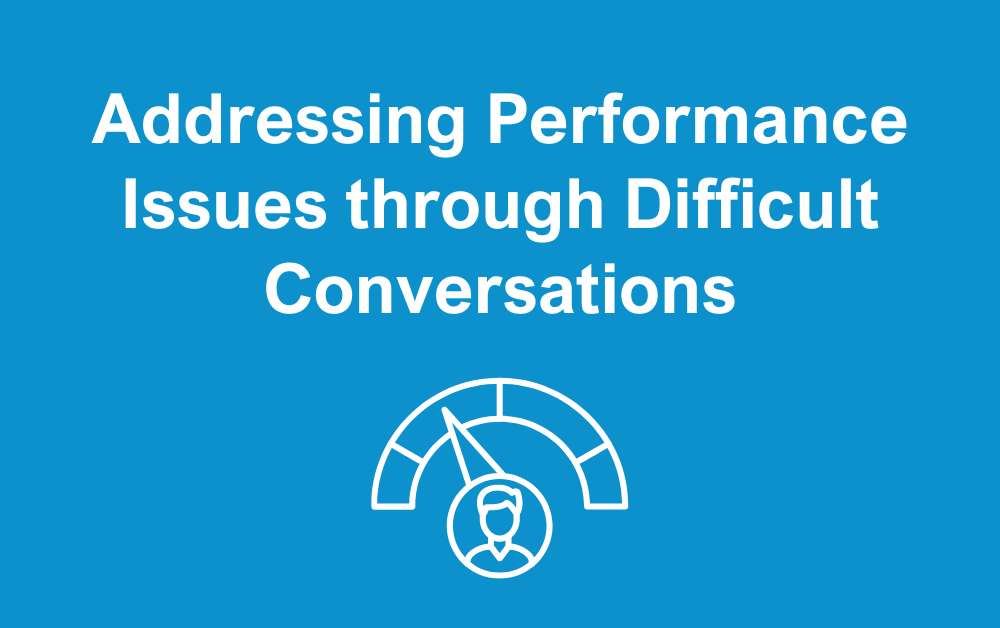Latest Podcast Episode
Check out the latest episode of our podcast which covers managing performance through having regular feedback sessions with your employees. Alistair also covers the topic of difficult conversations in the workplace.
The Importance of Performance Management
Performance management is vital for the success of your business and will help make sure every stakeholder within your business is aligned together, with the aim of achieving your overall company objectives. This will help your team strive for continuous improvement, through the form of regular feedback, celebrating internal successes and singling out areas for improvement. Identify and rectify any issues as early as possible through this approach, with the aim of nullifying any underperforming areas of the business. It is important that you lead by example from the top of the business to the lower ranking employees. As well as this, you will be able to utilise the hard – working and talented employees within your business and work towards maintaining a highly motivated workforce.
Have a listen at the podcast below, in which Alistair talks about how to get regular feedback from the relevant stakeholders within your business and how this will benefit your business functions.
Addressing Performance Issues with Difficult Conversations
Difficult conversations have a big part to play in addressing any performance issues within your team. Sometimes it may be a more suitable approach to discussing problems with performance – through the form of a direct conversation with the employee(s).
By deliberately ignoring these issues, you are risking continued underperformance and decreased morale levels amongst the team. Whilst we are saying that you should be direct with these conversations, it is important to always be constructive with your feedback. An employee will not be likely to respond well to any feedback spoken in a harsh or offensive way. They will be more likely to respond to feedback that they feel is fair and justified in a constructive manner. Conversations like this will also build a level of trust between manager and employee, by operating with an open – door policy. Click here a read at one of our blog articles highlighting the importance of an open – door policy and the benefits this brings with it.

Article Overview
This article will seek to provide you with a deeper understanding of effective performance managing techniques and how to navigate difficult conversations.
You may wish to implement a performance management process that goes beyond annual reviews. Employees may need ( and want ) feedback on a more regular basis than annually. Align your organisational objectives by implementing clear, realistic and measurable goals that your team will be keen to achieve. Have an open – door policy where employees can come to you about issues, and you can go to them about issues you may have.
Make sure you have a process in place for a difficult conversation, and how you wish these conversations to go. It is important to view the conversation as if you are the employee and think about how you would want to be treated. Make sure it is constructive & fair and that you listen to any concerns the employee may have.

Regular Performance Management
It is important performance should always be an ongoing process instead of a one off event on a yearly basis. This is important for catching any performance issues when they arise, and not further down the line, where you may find yourself in a situation with a more serious situation on performance issues.
Operate with a dynamic approach that responds to employee concerns. Whilst it is important to be responsive to employee concerns, you should also highlight any employee success stories. Make sure the employees are recognised for good work being completed, this can increase morale in the workplace and will also make any future difficult conversations a little bit easier.
Regular check – ins with your employees will help you gather the relevant feedback for this. In the podcast episode we have linked in below, Alistair discusses how to gather feedback from your employees and overcome any resistance barriers that you may be encountering.
Set Clear Expectations
Every business should have clear and measurable goals in place that will provide a purpose to your business. It is important that your employees buy into the vision that you set. Having visible goals in place will help your employees understand what is expected of them and how they are expected to reach their targets.
This will also benefit you, as a line manager, when it comes to performance review time, as both you and the employee will clearly be able to see the progress towards reaching the targets. If you are struggling to meet the targets, then it will also be clear to see. This will allow you to then set out a roadmap towards achieving these targets.
This will also help increase motivation amongst your workforce. If they are progressing well towards their target then they will likely gain some confidence from this and progress further towards the target.

Regular Feedback is Key
Holding regular feedback sessions is vital for business improvement. Ensure that you have a continuous and ongoing feedback process all throughout your workplace. At The HR Booth, we hold regular feedback sessions amongst our team and amongst our clients, with the aim of then implementing any of this feedback that we feel would be beneficial to our workplace. Not only this, but we also encourage our team to give feedback on an ad-hoc basis, i.e. there is no need to wait for an official feedback session.
Ensure your team feel valued and heard when listening to their feedback and always consider any suggestions that they suggest. We are currently designing our new office space and have regularly asked our team for suggestions with decorating and utilising this new space, some of which we have implemented. We’re not saying you must follow through with every suggestion but it is important to have a think about them all.
Have a listen below as Alistair speaks about appreciating your employees:
Spot The Issues Early
Let’s take a look at the three main giveaways that someone’s performance is dropping:
A drop in productivity will be evident if the employee is not completing as much work as they used to or the work they are completing is not to their usual high standard. It is important to monitor this regularly and act accordingly. Always be mindful that the employee may be experiencing issues out with the workplace.
Less participation from the employee may be another signal that performance issues are present. If the employee isn’t participating in meetings as much or they have a lack of enthusiasm for their work. They may also have left interest in social interactions with their work colleagues.
An increase in sick days taken or a lack of discipline around the workplace can also be representative of performance issues. Again, as a line manager, you have a responsibility to have to demonstrate a duty of care in the workplace for them.

Addressing Poor Performance
You can help catch the issues early and prevent performance related issues escalating into a more serious situation by implementing some techniques.
Have regular one – to – one meeting with your team. At The HR Booth, we hold these on a monthly basis. This provides the employee the opportunity ( on a monthly basis ) to raise any concerns they have and vice versa – the line manager can raise any concerns that they may have.
When giving feedback, ensure it is clear, concise and constructive – the three C’s if you like! The employee needs to fully understand what is expected of them to improve. They must know what they need to do to improve ( avoid vague feedback ). Lastly, make it constructive. The feedback needs to be done in a manner that they accept it and will also respond to it.
Offer support to them in any way that you can. The employee may have some relevant suggestions as to how you can benefit performance. As a line manager, you have a responsibility and a duty of care to offer support in any way that you can.
If you need any help or support with any of the topics mentioned in this blog article, then please contact us via the contact form at the bottom of this page.







